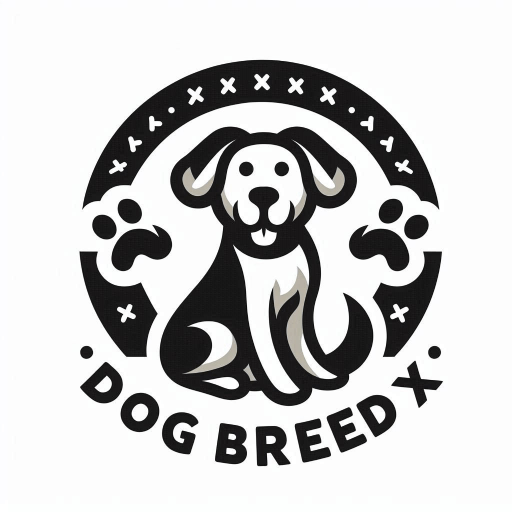Table of Contents
Pomsky Dog Breed: A Complete Guide
The Pomsky dog breed is a captivating hybrid that has taken the canine world by storm. A cross between a Pomeranian and a Siberian Husky, the Pomsky combines the best of both breeds into one adorable, fluffy package. Known for their striking appearance and playful nature, Pomskies are becoming increasingly popular among dog lovers. Whether you’re drawn to their expressive eyes, compact size, or lively personality, there’s no denying that the Pomsky is a breed that commands attention.
History and Origin
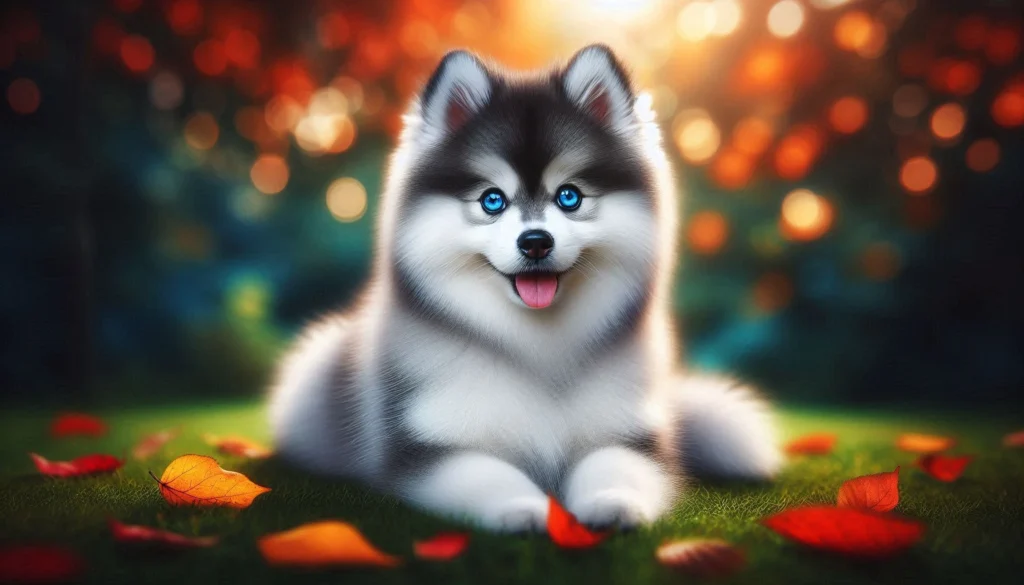
The history and origin of the Pomsky are relatively recent, tracing back to the early 2000s. Unlike many dog breeds with ancient lineages, the Pomsky was developed intentionally as a designer breed. The goal was to create a smaller version of the Siberian Husky with the charming features of a Pomeranian.
The first intentional breeding of Pomskies likely occurred in the United States. Breeders used artificial insemination to combine the Pomeranian’s petite size with the Husky’s majestic appearance. The result was a breed that not only looked unique but also possessed a delightful mix of traits from both parent breeds.
One interesting historical fact is that Pomskies quickly gained fame on social media platforms, where their photogenic looks and playful antics made them instant internet stars. This surge in popularity further fueled demand for the breed, cementing its place in the hearts of dog enthusiasts worldwide.
Physical Characteristics
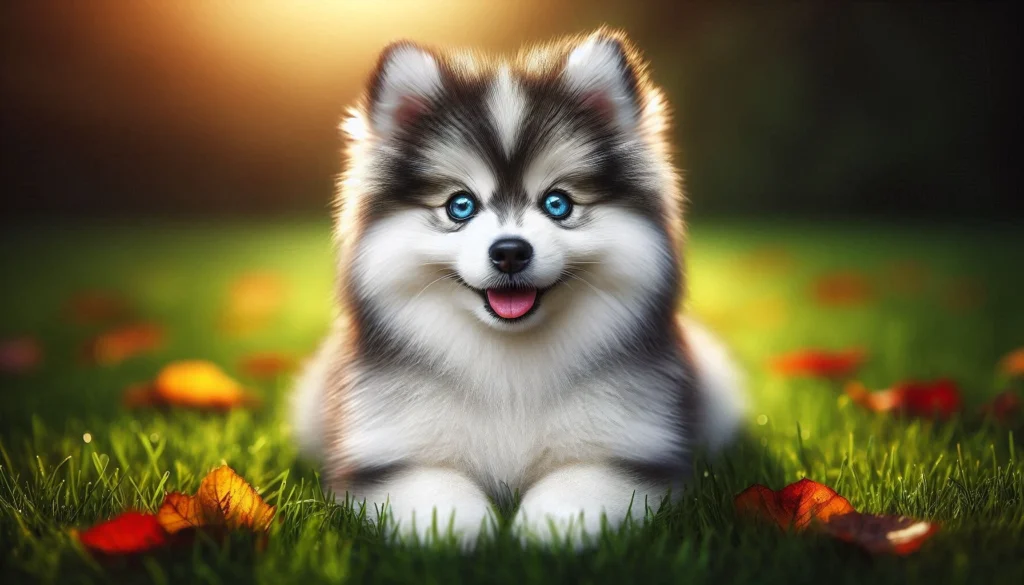
The physical characteristics of the Pomsky can vary widely due to the nature of hybrid breeding, but there are some common traits that many Pomskies share:
- Size: Pomskies typically weigh between 20 to 30 pounds, though some can be smaller or larger depending on the size of the parents. They stand about 10 to 15 inches tall at the shoulder.
- Coat Type: Pomskies usually have a double coat that is soft, thick, and fluffy. Their fur can be straight or slightly wavy, requiring regular grooming to prevent matting.
- Colors: The breed showcases a wide range of colors, including black, gray, white, brown, and even a combination of these shades. Some Pomskies inherit the Husky’s striking blue eyes, while others may have brown or even heterochromatic (two different colored) eyes.
- Distinctive Features: Pomskies often have a face that resembles a Husky’s with a foxy expression, but their smaller size and fluffier coat give them a distinctly cute and cuddly appearance. Their ears are usually pointed and erect, adding to their alert and intelligent look.
Temperament and Personality
The temperament and personality of the Pomsky are as delightful as their appearance. They are known to be friendly, energetic, and highly social, making them great companions for a variety of households.
- Interaction with People: Pomskies are affectionate and love to be the center of attention. They form strong bonds with their owners and are often very loyal. However, they can be somewhat reserved around strangers, making early socialization important.
- Interaction with Children: Pomskies generally do well with children, especially if they are raised together. Their playful nature makes them great playmates, though supervision is recommended to ensure that the dog isn’t overwhelmed, especially by younger children.
- Interaction with Other Animals: When properly socialized, Pomskies can get along with other pets, though their small size and energetic nature might make them more comfortable with dogs of similar or smaller sizes. Their high prey drive, inherited from the Husky, means they may not be the best fit for homes with smaller animals like cats or rodents unless carefully introduced.
Health and Lifespan
The health and lifespan of the Pomsky are generally favorable, but like all breeds, they can be prone to certain health issues. With proper care, Pomskies typically live between 12 to 15 years.
- Common Health Issues:
- Hip Dysplasia: A condition where the hip joint doesn’t develop properly, leading to arthritis or lameness.
- Eye Problems: Pomskies may inherit eye issues from their Husky parent, including cataracts or progressive retinal atrophy.
- Dental Problems: Smaller breeds like the Pomeranian can be prone to dental issues, so regular brushing is essential.
- Allergies: Some Pomskies may develop skin allergies, requiring special care and attention to their diet and environment.
- Tips for Keeping Your Pomsky Healthy:
- Regular veterinary check-ups are crucial to catch any potential health issues early.
- A balanced diet rich in nutrients will help maintain their coat, skin, and overall well-being.
- Regular exercise is important to keep them physically and mentally stimulated, reducing the risk of obesity and related health problems.
Care and Grooming
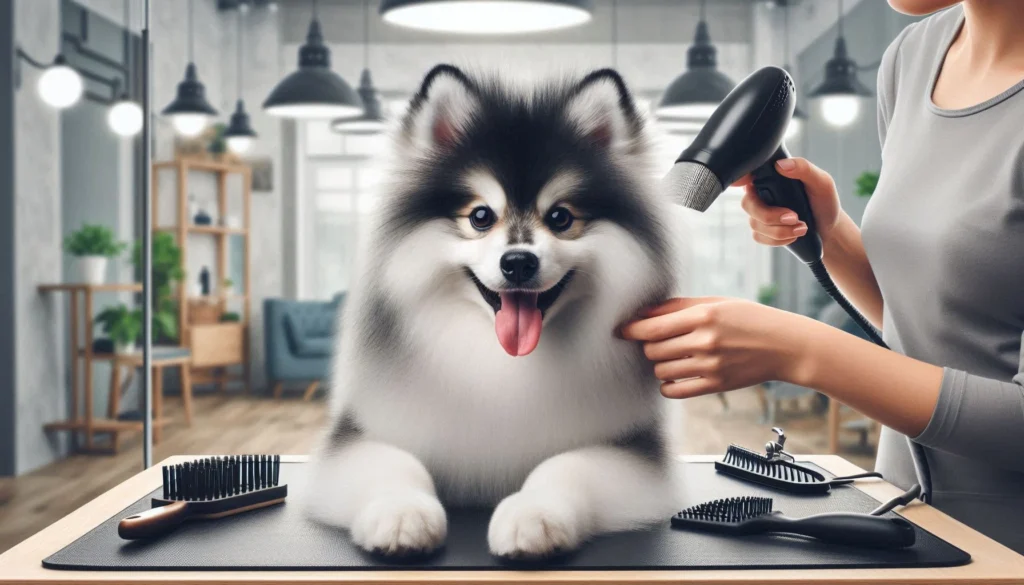
Caring for a Pomsky involves a commitment to regular grooming, exercise, and proper diet. Their double coat requires attention, especially during shedding seasons.
- Grooming Needs: Pomskies shed moderately throughout the year, with heavier shedding during the spring and fall. Regular brushing, at least two to three times a week, helps manage shedding and keeps their coat healthy. Bathing should be done as needed, using dog-specific shampoos to avoid drying out their skin.
- Exercise Requirements: Despite their small size, Pomskies are active dogs that need regular exercise to stay happy and healthy. A daily walk, along with playtime in the yard or home, will help them burn off energy. They also enjoy mental stimulation, so incorporating training sessions and interactive toys into their routine is beneficial.
- Dietary Recommendations: Feeding a high-quality dog food appropriate for their age, size, and activity level is key. Pomskies can be prone to weight gain, so monitoring their food intake and avoiding overfeeding is important. Including omega fatty acids in their diet can help maintain a healthy coat.
Training and Socialization
Training a Pomsky can be both a rewarding and challenging experience. Their intelligence and eagerness to please make them quick learners, but they can also inherit a stubborn streak from their Husky parent.
- Training Tips:
- Consistency is Key: Pomskies respond well to consistent and positive reinforcement techniques. Using treats, praise, and play as rewards will help reinforce desired behaviors.
- Start Early: Begin training and socialization early, as this will help them develop into well-behaved adults. Exposure to different people, environments, and other animals will reduce the risk of fearfulness or aggression later in life.
- Patience and Persistence: Given their occasional stubbornness, patience is essential. Short, engaging training sessions work best to keep their attention.
- Socialization: Proper socialization is crucial for Pomskies to grow into confident and friendly dogs. Regularly introducing them to new experiences, such as meeting other dogs and visiting different places, will help them adapt to various situations with ease.
Suitability as a Family Pet

The Pomsky can make an excellent family pet, provided their needs are met and their temperament is a good match for the household.
- Living Environment: Pomskies are adaptable to various living environments, whether in an apartment or a house with a yard. However, they are not well-suited for outdoor living due to their size and coat type. They thrive in environments where they can be close to their families and be involved in daily activities.
- Energy Levels: While they are energetic and enjoy playtime, Pomskies also appreciate downtime and can be content lounging around the house. This balance makes them suitable for families with varying activity levels.
- Compatibility with Children: Pomskies generally do well with children, especially older ones who understand how to interact with dogs respectfully. Their small size makes them less intimidating to young kids, though supervision is always recommended.
Fun Facts and Trivia
Here are some fun facts and trivia about the Pomsky that you might not know:
- Internet Sensation: The Pomsky gained popularity quickly, thanks in part to social media. Their photogenic looks and playful personalities make them natural stars on platforms like Instagram and TikTok.
- Size Variability: Because Pomskies are a hybrid breed, their size can vary significantly, even within the same litter. This unpredictability adds to their charm and uniqueness.
- Celebrity Owners: Several celebrities have been known to own Pomskies, further boosting the breed’s popularity and status as a fashionable pet.
Dog Breeds Similar to Pomsky

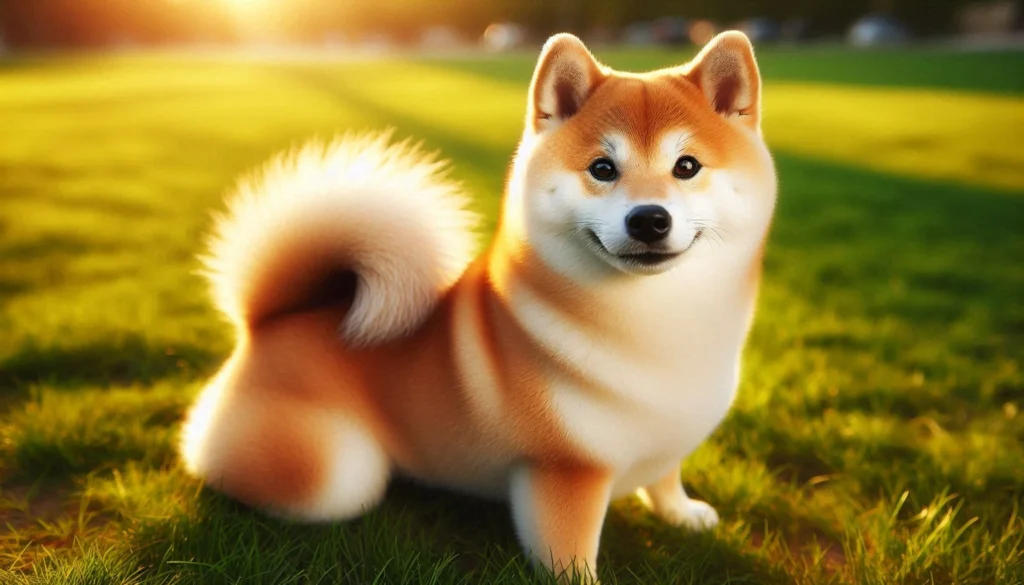
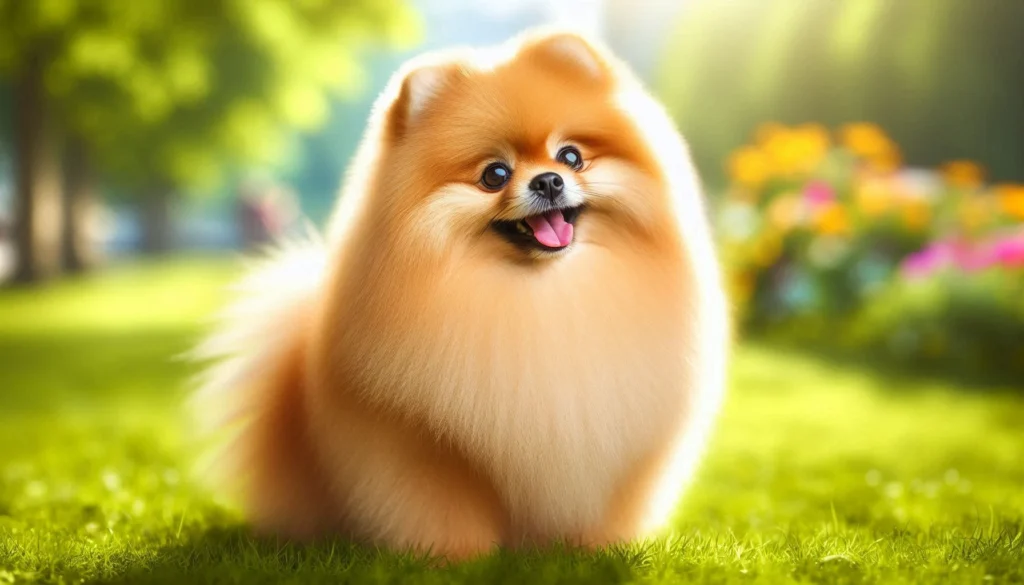
If you’re considering a Pomsky but want to explore other similar breeds, here are three options to consider:
- Alaskan Klee Kai: A smaller version of the Alaskan Husky, the Alaskan Klee Kai shares the Pomsky’s Husky-like appearance but comes in a more compact size. They are energetic, intelligent, and make great companions for active families.
- Shiba Inu: The Shiba Inu is a small to medium-sized breed known for its fox-like appearance and independent nature. Like the Pomsky, Shibas are alert, intelligent, and can be somewhat aloof with strangers but are loyal to their families.
- Pomeranian: As one of the parent breeds of the Pomsky, the Pomeranian is a small, fluffy dog with a lively and affectionate personality. They are well-suited to apartment living and thrive on attention and interaction with their owners.
Conclusion
The Pomsky dog breed is a delightful combination of beauty, brains, and charm. With their captivating appearance, playful nature, and loyal temperament, it’s easy to see why they have become such a popular choice for dog lovers. However, potential owners should be prepared for the commitment involved in caring for and training a Pomsky, as their unique mix of traits can present both joys and challenges.
If you’re considering adding a Pomsky to your family, take the time to research and ensure that this breed is the right fit for your lifestyle. With the right care and attention, a Pomsky can become a cherished member of your household for many years to come.
FAQ
Is the Pomsky dog a dangerous breed?
No, the Pomsky dog is not a dangerous breed. They are known for their friendly and playful nature. While they can be reserved around strangers, they are generally good with people, including children, especially when properly socialized.
Is the Pomsky the best guard dog to protect you or your family?
While Pomskies are alert and may bark to alert you of strangers, they are not typically considered guard dogs. Their small size and friendly disposition make them better suited as companion animals rather than protectors.
